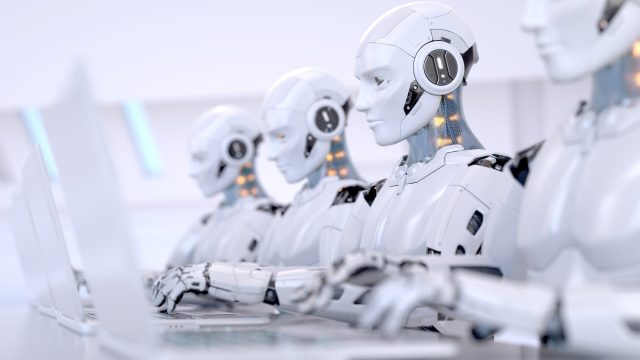For years, academics and writers of speculative fiction have raised concerns about the potential replacement of human workers by automated systems. Following a significant advancement in artificial intelligence technology in 2023, this apprehension is inching closer to reality.
Prominent figures in some of the largest global corporations are openly enthusiastic about the prospects of AI and their intentions to leverage this innovative technology to enhance their financial performance.
During the annual World Economic Forum in Davos, Switzerland, CEOs from various companies were surveyed by PwC, a renowned multinational professional services firm, regarding their perspectives on AI, particularly generative AI. This form of AI, as the name suggests, creates fresh content such as text, images, or audio based on user-provided prompts.
If you’re an active social media user, you’ve likely encountered instances of generative AI, ranging from nostalgic ‘90s-style illustrations to synthesized music performances by virtual versions of popular artists like Drake and The Weeknd. Additionally, you may have seen friends sporting retro yearbook photos or professional headshots, or even been misled by fabricated images of former President Donald Trump’s supposed arrest.
Generative AI is behind these creations.
A significant number of top executives believe that generative AI harbors untapped potential, potentially leading to cost-saving measures like workforce downsizing.
The majority of surveyed CEOs expressed keen interest in generative AI, envisioning it as a catalyst for innovation and competitiveness within their industries. However, up to 25% of these CEOs anticipated additional advantages from AI implementation, such as facilitating “headcount reduction.”
PwC highlighted that “one-quarter of CEOs are anticipating a minimum 5% decrease in workforce size in 2024 due to generative AI.”
Among various sectors, the entertainment industry is poised to undergo substantial transformation due to AI integration. Over 30% of media and entertainment company CEOs foresee staff reductions resulting from AI adoption.
In 2023, the entertainment sector faced significant disruptions due to contractual disputes between major film studios and writers’ and actors’ unions, with the use of AI in future productions being a pivotal issue.
While these disputes were eventually resolved with certain safeguards in place, concerns persist among professionals like editors, VFX artists, storyboardists, and post-production personnel regarding the potential displacement by AI.
Recently, Matthew Loeb, president of the International Alliance of Theatrical Stage Employees representing nearly 170,000 industry workers, indicated readiness for potential strikes as contracts with studios near expiration.
AI is anticipated to remain a focal point in future negotiations between studios and the vast workforce essential to the industry’s operations.
CEOs across industries such as insurance, banking, transportation, logistics, telecommunications, and retail foresee possible layoffs due to AI integration.
As cautioned by Futurism.com, executives should exercise caution when delving into the realm of artificial intelligence to avert unintended consequences. The platform previously exposed Sports Illustrated for utilizing AI to auto-generate articles, leading to the dismissal of the publication’s CEO.






